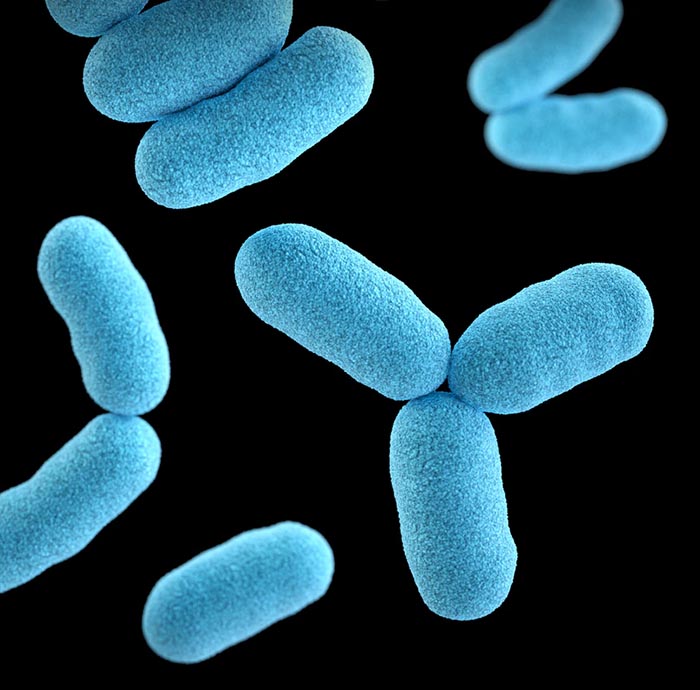Lactobacillus Plantarum For Gut Health And Much More

When you think of bacteria, you might not think about a powerful health ally, but rather something that causes infection or disease. While there are certain kinds of bacteria that can cause us harm, a large portion of the bacteria inside our bodies (especially our gut) helps to keep us healthy and ensures that things are running smoothly. This is where probiotics come in.
Probiotics are live microorganisms such as bacteria and yeast that can ingest to improve your health or even help to fight against the “bad” bacteria in your body. Probiotics can be found both in supplements and in various foods. A few well-known probiotic foods include fermented milk products such as yogurt and kefir, and many fermented foods such as kimchi, sauerkraut, and kombucha.
Probiotic supplements are generally used to improve gut health and balance the bacteria in the human gastrointestinal tract, but there are many more health benefits being discovered and people are now using probiotics more broadly.
Different species and strains of probiotics are thought to have specific effects and benefits for the body. Currently one of the most promising species is Lactobacillus plantarum (L. plantarum), a gram positive lactic acid bacteria from one of the largest genomes.
What is L. plantarum, how does it work, and what benefits might you see after adding it into your diet? Keep reading to find out!
What is Lactobacillus Plantarum?

First, what is lactic acid bacteria (LAB)? These bacteria produce lactic acid and can tolerate a lower pH (higher acidity) than many species of bacteria, making them more prolific in certain environments and more able to withstand the harsh conditions that exist in our digestive system.
Though there are many different species that can be classified as LAB, like the common Lactobacillus acidophilus, L. plantarum specifically has been the focus of a lot of research due to its potentially widespread uses including its antioxidant, anti-inflammatory, and anticancer properties.
Naturally present in the human body, Lactobacillus plantarum can be found in your gastrointestinal tract and in your saliva. While it’s commonly found inside the bodies of humans and other mammals, you can also find Lactobacillus plantarum in many probiotic supplements and in the following foods:
- Brined olives
- Pickles
- Sauerkraut
- Kimchi
- Ogi
- Sourdough bread
- Certain cheeses
This list is not exhaustive and many other fermented foods contain L. plantarum.
Just like other probiotics, L. plantarum works by providing and promoting microbial balance. Introducing a “good” bacteria like L. plantarum into the digestive system helps to suppress the growth of “bad” bacteria that can cause gas, irritable bowel syndrome other intestinal issues.
While it’s most famous for its gut balancing benefits, studies show that Lactobacillus plantarum has many other health benefits.
What’s the Difference Between a Species and a Strain?
Lactobacillus is one of the two most popular and most studied genera of probiotic bacteria, the other being Bifidobacterium. A genus, like Lactobacillus, can contain many species. Strains are a subdivision of species. Strains within the same species (in this case, plantarum) will share more similarities than strains of differing species. It is once again important to note that individual strains within a certain species can have different effects on the body.
Here’s a quick example of how the probiotic nomenclature works: Lactobacillus plantarum 299v is a common therapeutic strain of Lactobacillus. In this strain, Lactobacillus is the genus, plantarum is the species and 299v is the strain.
The Strains of Lactobacillus Plantarum
There are numerous probiotic strains, or sub-types, within the species of L. plantarum. New strains are still being discovered, but some of the more well known include:
- L. plantarum 299v: Often used to relieve intestinal issues.
- L. plantarum strains M13 and NS3: Found to reduce cholesterol levels by more than 50% in an in vitro study.
- L. plantarum strains ATG-K2, ATG-K6, and ATG-K8: In a newer study, these strains were found to have potential for improving intestinal health and having anti-inflammatory properties, among several other things.
- L. plantarum LZ227: Potentially involved in the production of B-group vitamins.
- L. plantarum CJLP133: May be helpful in the treatment of pediatric atopic dermatitis (eczema in children).
This list is nowhere near complete but simply serves to show how unique the benefits of each strain can be.
Diving Deeper into the Possible Health Benefits

Some of the positive effects caused by Lactobacillus plantarum are widely accepted, while many could be classified as “promising” and backed by a good deal of research, and several remain either controversial or only recently discovered. While reviewing the lists below, be sure to remember that more clinical trials will be needed in order to form any definitive conclusions about many of these purported benefits.
Benefits Backed by Research
Each of the following health benefits is backed by more than one clinical trial involving humans. This doesn’t mean they are definite, but that they have more scientific support than lesser-studied benefits.
- IBS relief: Pain, bloating, and other Irritable Bowel Syndrome symptoms were reduced for those who took Lactobacillus plantarum for four weeks as opposed to a placebo. In fact, 78.1% of patients who were taking L. plantarum in this double blind, placebo controlled study said that they thought the effect of L. plantarum was “excellent or good,” whereas only 8.1% of the placebo group said this. Though there are some contradictory studies, L. plantarum is still commonly used to moderate IBS symptoms.
- Cholesterol: Not only were two strains of L. plantarum shown to reduce cholesterol by over 50% in an in vitro study (outside of the body), but three different strains were successful in lowering the total cholesterol of adults aged 18 – 65 years old by 13.6% in 12 weeks.
- Skin health: In one randomized, double blind study, children with eczema were given either Lactobacillus plantarum or a placebo for 14 weeks. The group that received the probiotic saw a decrease in symptoms. In another study, a different strain of Lactobacillus plantarum was shown to improve skin water content and reduce the depth of wrinkles in adults.
- Nutrient absorption and production: Specific strains of Lactobacillus plantarum are able to produce certain B-group vitamins, and others can increase the absorption of iron and calcium in some situations.
- Antibiotic-associated diarrhea (AAD): Lactobacillus plantarum has been shown to help prevent some of the effects of gastrointestinal symptoms in those who are being treated with antibiotics.
Benefits In Need of More Research
Many more benefits are being researched, but several have only been studied in non-human environments such as in mice and rats, or only on the cellular level. It’s still quite possible that these benefits apply to humans, but more research will need to be done to come to any kind of conclusion.
- Obesity: In more than one study testing the anti-obesity and weight loss effects of Lactobacillus plantarum, mice have been shown to lose weight after the addition of L. plantarum to their diet. These weight loss effects have yet to be properly tested in humans.
- Relief from anxiety and other mental health issues: In a meta-analysis of 34 controlled clinical trials, it was found that probiotics may play a positive role for those with anxiety and depression.
- Blood sugar: Lactobacillus plantarum has been shown to reduce glucose levels, specifically in post-menopausal women. Additionally, several studies have shown positive effects on blood glucose levels and insulin regulation in mice.
- Candidiasis infections: In a study on L. plantarum’s effect on those with candidiasis (yeast infections), it was found that taking the probiotic was associated with a three-fold reduction in the risk of recurrence. Also, in a laboratory setting, L. plantarum was found to kill candida yeast.
- Allergies: In one clinical study involving humans, drinking juice that was fermented with L. plantarum was found to improve symptoms of Japanese cedar pollinosis, a pollen allergy. Another study involving mice showed reduced allergic responses and reduced airway hyperresponsiveness as a result of L. plantarum.
- Liver health: There are several studies that suggest that L. plantarum has the ability to help improve liver health in mice and rats. One such study shows that rats with nonalcoholic fatty liver disease (NAFLD) took a specific strain of L. plantarum for 5 weeks resulting in restored liver function, decreased fat accumulation in the liver, and regulated bacterial flora in the colon.
An Exciting Direction for Research
The examples above are not exhaustive, and there are still many health benefits being studied, some promising and some more controversial. Also, research is still ongoing on all of the previously mentioned benefits, as well as the very exciting and potentially groundbreaking topic of cancer.
- Cancer: Anti-cancer and anti-tumor effects have been studied in mice and rats, many with positive results. Though these effects are yet to be tested in humans, there is also ongoing research on the positive effect L. plantarum can have on cancer patients’ quality of life.
Much more research needs to be conducted in order to deduce L. plantarum’s effects on cancer and tumors.
Side Effects and Safety
Both probiotics in general and Lactobacillus plantarum specifically have been deemed as generally safe. Just like with any medication, dietary supplement, or food, it isn’t possible to say something is completely safe 100% of the time. So, what side effects might the average person experience when taking L. plantarum, and when might it not be safe?
The most common side effects are gas, bloating, or other mild gastrointestinal upsets. These are normal for most kinds of probiotics and generally dissipate as your body gets used to taking them.

Due to the possibility of developing an infection, people with weakened immune systems, short bowel syndrome, severe ulcerative colitis, and damaged heart valves should avoid taking L. plantarum until they speak to a medical professional.
The most important drug interactions to be aware of with Lactobacillus plantarum are antibiotics and immunosuppressants. If you are taking antibiotics with L. plantarum, the probiotic may get killed off by the antibiotic and have no effect. Because of potentially dangerous drug interactions, if you are on a medication that suppresses your immune system, be sure to talk to your doctor before taking L. plantarum, as it could increase your chances of getting sick or developing an infection.
The bottom line is to always get the opinion of your health care provider if you have any doubts or known risk factors. It’s always a good idea to talk to your doctor before taking any new medications, dietary supplements, or even before making a major change in your nutrition.
It’s also important to keep in mind that L. plantarum and probiotics, in general, are a great way to potentially improve your well-being and relieve some uncomfortable symptoms, but they are not a substitute for “normal” medical care, and you should always speak to a professional about any medical issues you may have.
In Review
The popularity of probiotics will continue to grow. As one of the most popular species both to study and use, Lactobacillus plantarum is sure to appear in more and more supplements and food. Though more research needs to be done to confirm the effectiveness of Lactobacillus plantarum for many of its purported health benefits, probiotic research is moving forward quickly and as more clinical trials show the positive effects of probiotics, more people will use them as a way to support good health.

In general, L. plantarum is thought to be incredibly safe and to have minimal side effects for the average user. The positive effects can range from improved gastrointestinal health and lessened anxiety to potentially helping you lose weight and lower your cholesterol.
In terms of safety, it’s likely that the only side effects you’ll experience are some temporary gas and bloating. You are only likely to experience more adverse side effects if you are in an at-risk group or if you are taking medication that suppresses your immune system. Again, this is why it’s very important to talk to a health care professional before taking Lactobacillus plantarum (or any probiotic) in these situations.
Overall, Lactobacillus plantarum is turning out to be a widely useful and beneficial probiotic species. New strains and new benefits are being discovered all the time, and the topic is sure to hold the attention of scientists, and the general public, for a long time to come.
If you want to try out L. plantarum for yourself and see what health benefits it can provide for you, be sure to look into the different strains available and choose one that seems like it best fits your needs. It’s time to take control of your health and your happiness!




